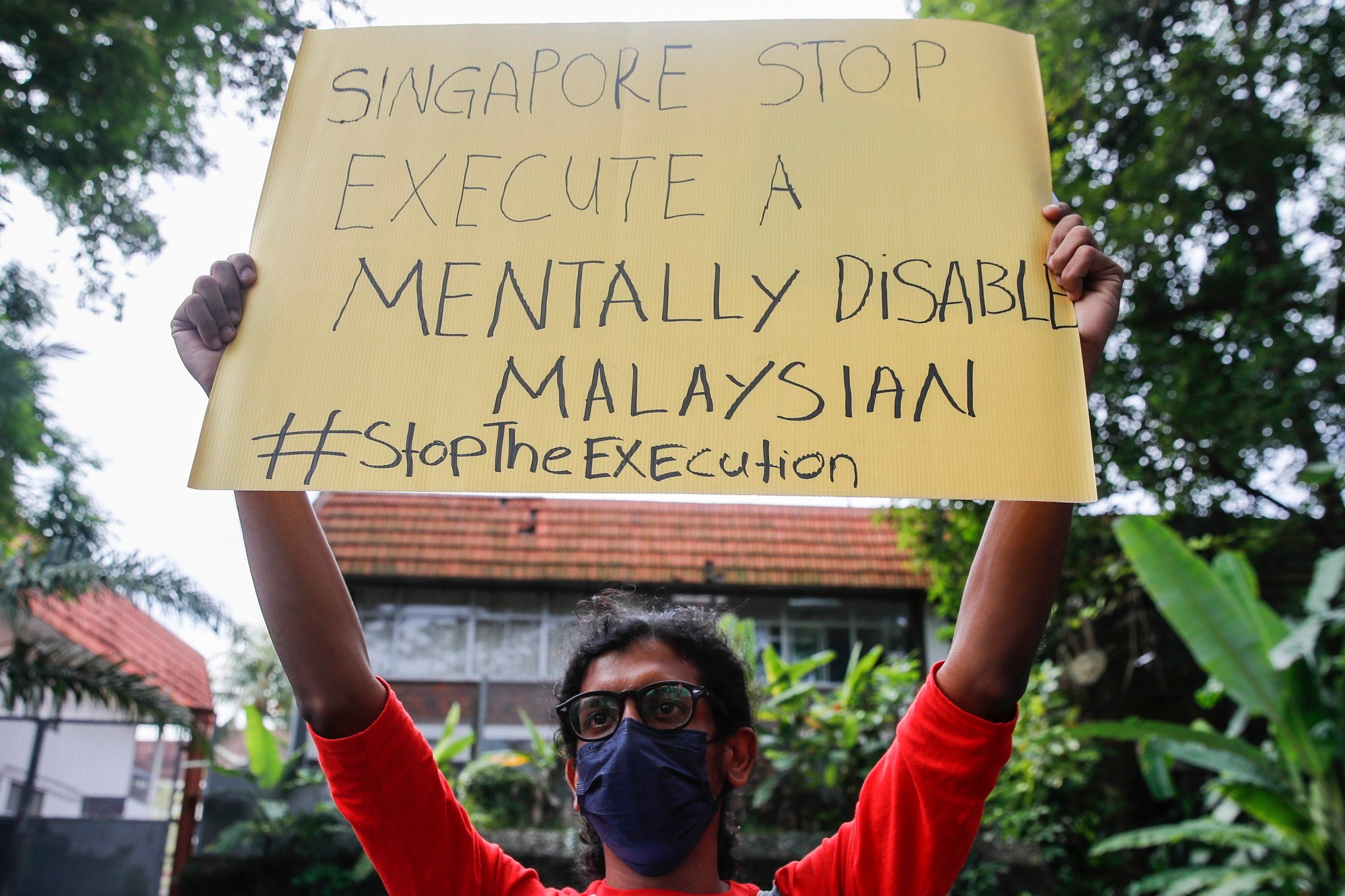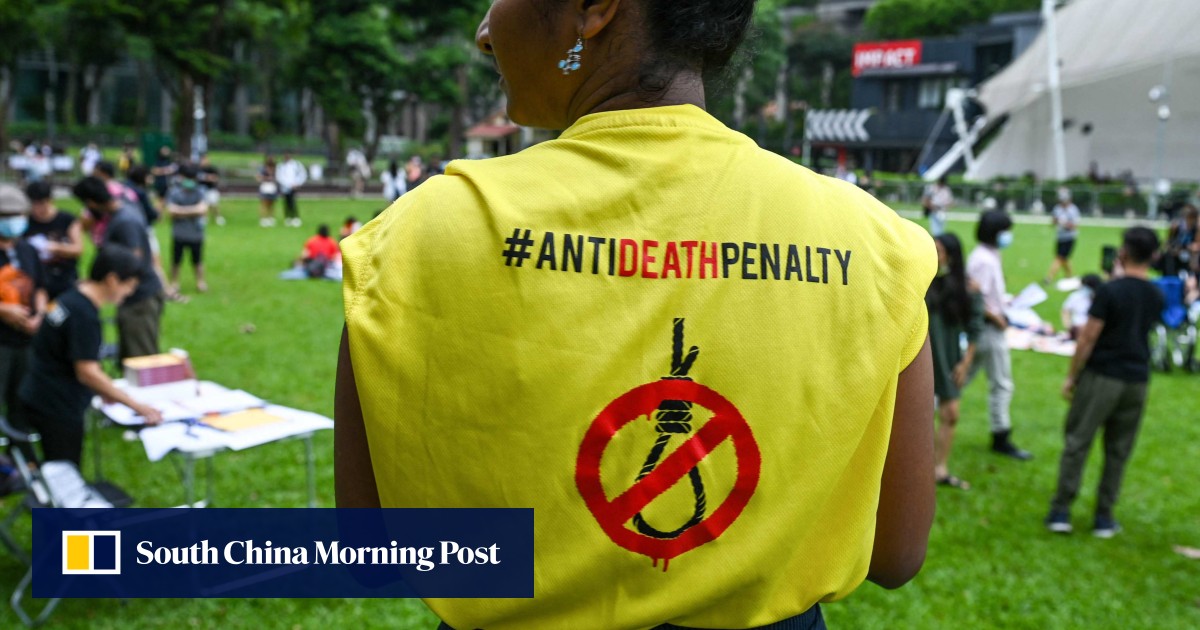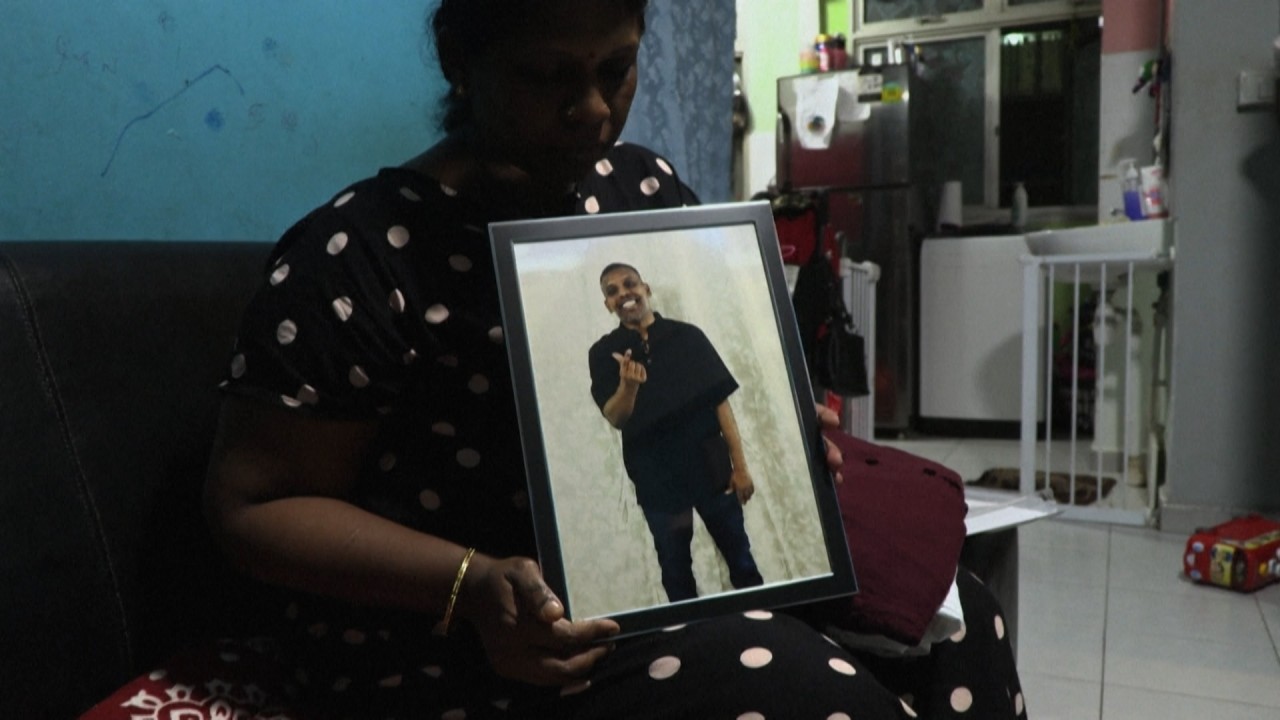This was up from 66 per cent recorded in 2021, Shanmugam said, adding that the ministry will publish a full report of the most recent survey later this year.
Nearly 77 per cent of survey respondents agreed that the death penalty should be used for the most serious crimes, such as murder and drug trafficking – up from almost 74 per cent two years back.
The vast majority of Singaporeans know and understand the facts and reality, and why the government says the death penalty is necessary
He also pointed to a National Council Against Drug Abuse survey last year, where almost 91 per cent of respondents expressed support for the country’s drug-free approach.
Eighty-seven per cent agreed that Singapore’s drug laws are effective in keeping the country relatively free of drugs.
Beyond Singapore, Shanmugam highlighted a 2021 study conducted in parts of the region where most of the country’s arrested drug traffickers have come from in recent years.
It showed that 87 per cent of respondents believed that the death penalty deters people from trafficking substantial amounts of drugs into Singapore.
A similar proportion – 86 per cent – believed that the death penalty makes people not want to commit serious crimes in Singapore.
Of the respondents, 83 per cent also believed the death penalty is more effective than life imprisonment, in discouraging people from bringing drugs in.
“So those who suggest that the death penalty can be replaced by life imprisonment, should look at these figures. The deterrent effects of the two penalties are very different,” Shanmugam said.

“It is not easy for us … to decide to have capital punishment as part of the penalties in law. But the evidence shows that it is necessary to protect our people, prevent the destruction of thousands of families, and prevent the loss of thousands of lives,” he said.
Shanmugam said the high levels of support were due to Singaporeans’ trust in the government to do the right thing, and do right by Singapore.

“The vast majority of Singaporeans know and understand the facts and reality, and why the government says the death penalty is necessary,” Shanmugam said.
In his speech, Shanmugam described anti-death penalty activists as making “baseless allegations, one-sided claims and half-truths”.

Five parties – The Transformative Justice Collective, The Online Citizen Asia, Andrew Loh, Kirsten Han, M Ravi – had continued to falsely allege that Tangaraju was denied an interpreter during the recording of his statement, Shanmugam said.
“This, despite the courts’ clear statement to the contrary. A blatant, false attack on the criminal justice system,” he said.
Some of the activists have also filed “unmeritorious” legal applications on behalf of convicted drug traffickers, often at the last minute, Shanmugam said.
In one case, there were seven post-appeal applications, which were all dismissed by the courts for being without merit, he said.
The last application had a correspondence email address belonging to an anti-death penalty activist, Shanmugam said.
The court dismissed that application as a “blatant and ill-disguised application to disrupt the carrying out of the sentence”, he said.
In November 2022, Singapore’s parliament passed the Post-Appeal Applications in Capital Cases Bill to provide a clear process for such applications.
Shanmugam said he expects the bill to be brought into force soon. It will seek to safeguard the administration of justice and the rule of law, introducing new requirements to reduce potential delays to proceedings, he said.
“We are now considering what else needs to be done to make sure this new legislation can be properly supported. We will come back to the House if necessary,” he added.
“I wish to make it clear to members and Singaporeans, be assured we will take all necessary steps to ensure that this sort of abuse of process is dealt with.”


